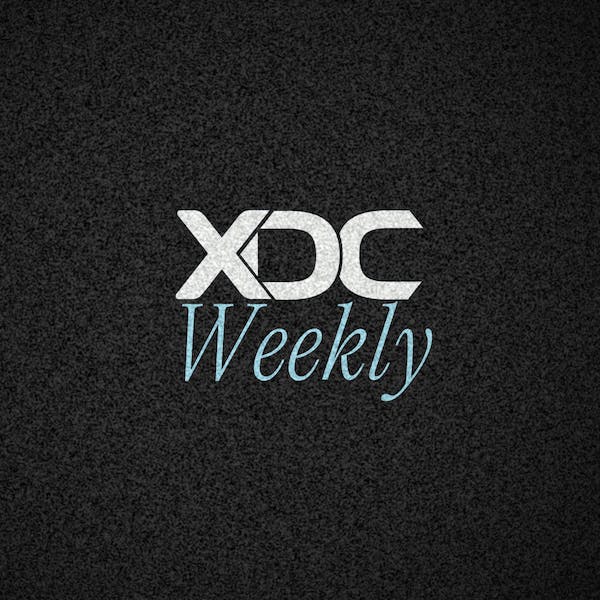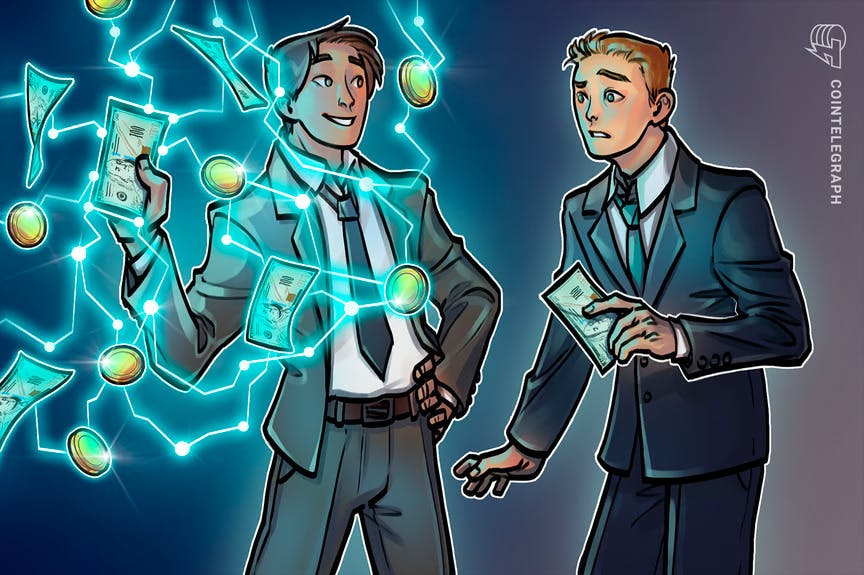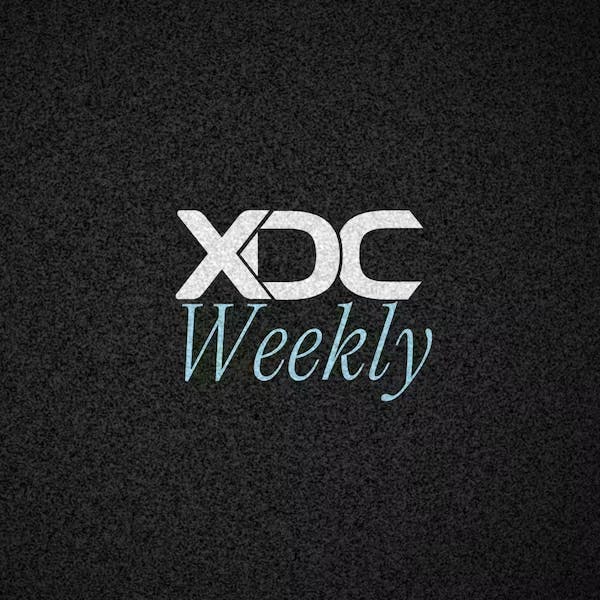"Shift from calling it the cryptocurrency industry and emphasize that this is really the blockchain industry. There is too much emphasis around cryptocurrency. If we shift the discussion to the blockchain industry, we emphasize the technology behind it. If we look at the XDC Network, there are thousands of hours spent in developing the technology that, in itself, is the rails of what can happen on that technology. But the value is in the blockchain itself. If we focus on the blockchain and what’s been built, cryptocurrency could be viewed as more of a tool. Instead, we’re in this time where, let’s face it, a lot of cryptocurrency is completely useless. It’s really the blockchain technology that powers this industry — the ability to settle transactions instantaneously, reduce costs of transactions. If we focus on those strengths, it’ll make a huge difference."
As part of my series about the “5 Things That Can Be Done To Improve and Reform The Cryptocurrency Industry”, I had the pleasure of interviewing Billy Sebell.
Billy Sebell is the Executive Director of the XDC Foundation. Before his involvement in blockchain in early 2018, Billy spent 25 years in manufacturing and consumer products, dealing with the challenges businesses face in capital markets and international trade. Billy attended the University of Massachusetts at Amherst — Isenberg School of Management, where he earned a BBA in Operations Management.
Thank you so much for doing this with us! Our readers would love to “get to know you” a bit more. Can you tell us a bit about your “backstory”?
From a career perspective, I grew up in the manufacturing industry and spent over 25 years in the business, focusing on processing operations, growth and capital markets, as well as importing and exporting. After leaving manufacturing, I started a consumer products company, making apparel in the cycling industry. This led me to digital marketing and web development. I’ve always had an interest in technology and building things, and when I found the XDC Network, it seemed like a perfect fit for what I wanted to do next. I spent three years volunteering my time in the community as I learned more about the project. My natural instinct to teach others drove me to try and educate the community with whatever knowledge I could gain. Eventually, after those first three years communicating regularly with the founders, I found myself in the unique position of being a conduit of information for the community and helping to build it. This led very naturally into a full-time position with XinFin Fintech.
Can you tell us the story of how you got first involved in blockchain and the cryptocurrency industry?
I first became interested in bitcoin in early 2018. I thought it was an interesting time to get into the market, and it turned out to be the start of the crypto winter of 2018–2019. At the time, it was a real opportunity for me to search new projects and see what was being built in the technology. That’s when I discovered the XDC Network. Having spent over two decades in manufacturing and dealing with importing and exporting in capital markets, I loved the idea of what XDC Network could provide for the invoice factoring infrastructure and for the growing trade finance gap. I remember thinking that if this technology was around when I was in business, it would have made things a lot easier than it was at the time. So, I dove in, became very involved in the community, and developed a relationship with the founders. It was a really interesting time for the project — the founders were very accessible, and I was able to learn more and find answers about the project. And as I did that, I shared it with the broader community, which eventually led to me taking on an official position with XinFin two years ago in 2021 and then the launch of the XDC Foundation 6 months later from which I have never looked back.
None of us are able to achieve success without some help along the way. Is there a particular person who you are grateful towards who helped get you to where you are? Can you share a story about that?
Atul Khekade, one of the founders of Xinfin, was somebody I started to form a relationship with early on in my time within the XDC community. In 2018, I met up with him in Boston at a Blockchain For Finance Conference. He was incredibly welcoming even though we didn’t know each other very well. During the time we were together, he shared a tremendous amount of information about what he was doing there at the conference and really welcomed me to help them. After that time he gave me his ear whenever I needed it. He would listen when I asked questions and would always respond to the point that I became a conduit of information for the XDC community. Through those communications we built a rapport over the last few years, and it helped me make an impact in the community. It also led me to join the team on a more permanent basis. Atul immediately said, “Well what do you want to do?” I had written a long, thought-out email outlining why I wanted to join XinFin, and he responded matter of factly: “Billy, you don’t have to convince me to do anything. What do you want to do?” So he always had a belief in my abilities and experience to help the XDC community.
Since then, Atul and I have been aligned in our views around creating something that can make a difference. He was really the first person in this industry to give me my start and my chance and to open up a whole new realm of opportunities in blockchain. He’s entrusted me with a lot since we first met, and it’s given me the chance to bring what we’re doing to more people and pay it forward like he did for me.
Can you share a story of a time when things went south for you? What kept you going and helped you to overcome those times?
I’m a little long in the tooth for this industry, so I’ve had plenty of opportunities in my career for things to go south. When I look back over thirty years, I know there’s been a lot of success but also some failures. It’s these failures that we can learn from. It’s the toughest times that teach us who we are and how we persevere.
The most recent and present has been what happened in spring 2022 in the blockchain industry — when news of Three Arrows Capital and Terra Labs kicked off what feels like an avalanche of failures, disruptions, and related contagion in the industry. Then there was the fallout from the FTX scandal where everybody was impacted. While the XDC Network did not have significant material exposure to these collapses, the fallout still had an effect on our community. In this industry, what happens within blockchain adoption cycles can dramatically impact business and organizational structure. We have to adjust to what’s going on. Remain adaptable. The nature of what happened in this particular instance was fairly catastrophic to many who were supporting blockchain adoption and, because of that, I felt like everybody responded with a knee-jerk reaction to it.
Looking across markets, even now there are a lot of layoffs happening outside of crypto. That’s had an impact on our people and the organization. We’ve looked internally at the decisions we’ve made to get us where we are today. I think one of the things that really made a difference for us as a whole is we’ve had a lot of really strong team players within our ecosystem, not just in terms of what their capabilities are, but also with regard to their support for each other. We are aligned in our focus on what experiences we want to deliver to the XDC community. In supporting the network, we always try to make every decision based on what is the best for users, developers, enterprises and collaborators. Once we do that, we start to get through the longer days, and they get a little bit brighter, and we’re able to see the fruits of our labor.
In your experience, what are the top strategies that blockchain companies should consider to have a stronger competitive edge?
1. I’m a big believer that you always want to find people who are better than you at what you do and build a team around them. You want to create an environment where people are highly skilled and supportable as a team player, people who are always looking to develop both personally and professionally and in my mind, the key to building a successful team and organization. The number one recipe for success is to always build better: with people and with ourselves.
2. Celebrate your successes and move on, learn from your failures and focus on doing better next time. It’s great to have successes, and we’ve had many since I joined the team, but it’s by accepting and understanding the areas where we failed to execute that make us better and stronger. No matter how hard we try to make good decisions, in a rapidly evolving industry, some number of them will not work out. But what we learn from those decisions is invaluable. This industry is unforgiving when it comes to adoption cycles. We have to learn the lessons and make the best of them, or we won’t be around for too long.
3. Community Focus. It’s an industry with unrelenting challenges, and there are many critical people. We just have to do what we think is the right thing to benefit and support the community of users and developers. For XDC Network, that includes doing right by enterprises and trade finance organizations. Within a decentralized network, people come in from all over, with all different skill sets and a willingness to collaborate. The opportunity is immense connecting institutional players on the network with everyday community members. We want the people in our community to feel like they have a voice — that they support the project and they share their community spirit about the project with others. There are a lot of different ways people can contribute, and that makes them feel committed to the ecosystem. We’re always looking to move that forward. Why are we doing this, and who are we doing this for? If we don’t have that focus, nothing else matters.
What are the 3 things that most excite you about the blockchain industry in general? Why?
1. Blockchain is the first thing I’ve ever seen that is truly about all boats rising. I came into the industry in 2018, and it’s the first opportunity I’ve had to truly meet people from all over the world. I’ve met people from all different backgrounds, all different histories and challenges. But the one thing that’s equal is that everybody has an opportunity to benefit from their involvement in blockchain. For example, I met someone recently who was working in a job that wasn’t providing a living wage. He was able to tap into some of the tools on the XDC Network where he learned blockchain development and ended up creating a living wage for himself and was able to support his family as a result of it.
2. There are a range of blockchain use cases that can make a big difference for businesses. There are a lot of challenges for businesses, and having a platform where trade finance, for example, can happen or invoice factoring can be performed from halfway around the world gives access to financing for people who may not otherwise have it. These networks create opportunities to access truly decentralized and transparent platforms that serve as a medium for frictionless communication and exchange. Tokenization and NFTs open up a world of opportunity for major institutions and developing entrepreneurs. On XDC Network, users have a whole ecosystem of diverse participants to interact with on a daily basis. What an exciting opportunity to really make an impact.
3. Understandably, some people may look at blockchain as the Wild Wild West. When looking at FTX for example, it seemed like there was no adult in the room. People were doing things that made no sense from a practical standpoint. Clearly, regardless of their intentions, it did not work out for the greater good. Many FTX users, industry players and blockchain community members were affected. But for the most part there is a tremendous amount of positive movement and progress with blockchain adoption. There is a lot of disruption happening in industries that really need it. As a technology, the opportunity for disruption, while making decisions with the best intentions, is hopefully going to create opportunity in the long term. The excitement of that is pretty cool. I feel like I’m on the frontier of something really important, and that’s a great feeling.
What are the 3 things that worry you about the blockchain industry? Why?
1. *Laughs* Well that’s the other side of the Wild Wild West metaphor, right? There are a lot of unknowns in this space, and there are decisions coming out that can have industry-wide impact. There are many people who don’t believe in the good of blockchain — they see crypto as something of its own without any value. What’s troubling is that we don’t have clarity.
2. You can work in this industry and be located in the U.S., but there aren’t benefits here in this country. If there is an integration happening, much of the stuff we’re doing on chain isn’t even accessible to us. So, from a competitor perspective, being here in America is troubling. We are falling behind technologically as a result of people at the federal level not addressing key issues and creating the opportunity for industry expansion. As far as the United States goes, Web3 development is falling behind, and that’s very worrisome.
3. Ignorance. There’s a lot of ignorance to what the technology is and what the technology can do. People do nefarious things, like what happened back in the early days of crypto with Silk Road. Now people say, “Oh it’s all about money laundering.” But the reality is you can track and trace any transaction more easily than you can with cash. So, the illicit activities are not happening the way they’re portrayed to be happening. That ignorance and the way people portray the industry has a real negative impact on the overall narrative. For instance, I’ve heard so many times how “Bitcoin is going to die” and that we’re experiencing “Crypto Extinction.” That is just not the case. I feel like the ignorance around that and the people pushing that makes us wonder how much they’re taking away from the benefit of blockchain technology and what can be accomplished with Web3 innovations becoming a part of people’s lives.
Ok, thank you for all of that. Here is the main question of our interview. Can you please share “5 Things That Can Be Done To Improve and Reform The Cryptocurrency Industry”? If you can please share a story or example for each.
1. Shift from calling it the cryptocurrency industry and emphasize that this is really the blockchain industry. There is too much emphasis around cryptocurrency. If we shift the discussion to the blockchain industry, we emphasize the technology behind it. If we look at the XDC Network, there are thousands of hours spent in developing the technology that, in itself, is the rails of what can happen on that technology. But the value is in the blockchain itself. If we focus on the blockchain and what’s been built, cryptocurrency could be viewed as more of a tool. Instead, we’re in this time where, let’s face it, a lot of cryptocurrency is completely useless. It’s really the blockchain technology that powers this industry — the ability to settle transactions instantaneously, reduce costs of transactions. If we focus on those strengths, it’ll make a huge difference.
2. Clear Regulation in the United States. I should be clear this is just my personal opinion: let’s remove the control of any existing governing body, like the SEC or CFTC, and any of these agencies that claim to have oversight and create something completely new that is dedicated to cryptocurrency. If we want to solve the regulatory problems, we must focus on the things that are specific to those problems. Digital assets are a new asset class accepted across the globe. Without the right focus at the federal level, the regulatory problems will only grow.
3. Start showing what blockchain can do on a local level. Take cues from local use cases. For example, real estate tokenization is emerging as a more localized or regional use case. Land registry has a utility that can make a big difference on the blockchain when it comes to costs for communities managing deeds and associated disputes. In the past, someone could forge a deed because there wasn’t an immutable method for recording these transactions. So go to local offices, work with regional officials and look for ways to incorporate blockchain into those local municipalities. From there you can take that model and build it across the country.
4. The narrative needs to shift from being punitive to being conciliatory. A commonly understood regulatory framework could streamline adoption and invite more institutional cooperation than trying to regulate through actions or the court system which we have seen. When people do not understand something, they don’t try to typically help find a way to make it successful and this has been going on with crypto since the start. At this point, clear regulations and guidelines would be conciliatory to the projects that are simply trying to build value in our industry.
If industry players are clear on how they can operate, they can be more effective. Instead, it seems like none of the regulatory agencies want to work with organizations because they’re concerned about the backlash. It should work like this: If you’re doing something illegal, the governing agency will come after you to the full letter of the law. But if you come out here with the best of intentions and have operated around building a product or supporting an open-source technology, regulators will hear what you have to say and work toward a clarity that will be the best outcome for everybody. If you’re operating in an environment where you need some understanding, but you’re doing it in an ethical, legal way, the governing bodies will allow you to innovate and serve different industries. That would bring a whole new level of transparency, allowing people to work more effectively together. These efforts could be the key to moving towards the types of regulations that are needed.
5. Deal with the issues going on with exchanges. Obviously, we know what happened with FTX and the collapse there. There are a lot of exchanges out there that have not been transparent in what they’re doing. There needs to be clarity for how businesses can use a medium of exchange in a way that creates transparency and protects the consumer, while letting people participate in a safe environment with reduced risks. It’s not blockchains that pose the biggest risk to the systems; the main risks are with the exchanges. There are exchanges that are operating in the dark and abusing the power afforded to those who arrive early to an emerging industry. We need guidelines for operating exchanges, and if they are doing something illegal, their officers should be accountable to a judicial system. If we can create a framework, then we can have higher quality exchanges come on board, and people in traditional finance will move into this industry with more confidence. I also think developments with certain decentralized exchanges are encouraging for the industry.
How have you used your success to bring goodness to the world? Can you share a story?
I was on Twitter interacting with an XDC Community member in Asia. He was accumulating XDC over time, even sent me a message that he was something like 8,000 XDC away from meeting his goal for the end of the year. I asked him what his wallet address was, and I sent him the difference for him to meet his goal. It wasn’t a lot of money, probably like $50, but to him, it made a world of difference.
As time went on, his parents sadly both got COVID, and he had to sell his XDC in order to pay for their healthcare. Tragically, his parents both passed away, and he was still trying to support his sister during this awful time. He had posted about this on Twitter and when I saw it I got together with a few foundation team members and we sent him 100,000 XDC which was all the XDC he had and needed to sell for his parents care. It was one of those things where we couldn’t take away the pain that he had been through, but we could ease some of his burden and his loss. This is one of the small ways we can really make a difference with what we’re doing. I’ve had the opportunity to help with some small gestures that made a real impact.
Can you please give us your favorite “Life Lesson Quote”? Can you share how that was relevant to you in your life?
“Always remember that worthy causes meet with the most resistance–even internal withholding of support and loyalty. If victory is easily gained, you must reconsider the worthiness of your ambitions.” This is a quote I’ve had in my life for over thirty years. It’s a fictitious quote attributed to Attila the Hun. The idea is that with anything in our life, there are doubts. We run into individual doubts, doubts from people around us, we may be challenged at every turn. If we didn’t actually realize the value in what we’re trying to accomplish, we’d simply give up. Everything we do at the XDC Network is about bringing value and being worthy, the things that make a difference for others, especially in the most trying of times.
How can our readers further follow your work online?
You can follow everything happening at XDC online here at www.xdc.org. You can follow me on Twitter at @XinFinUSA.
Thank you so much for this. This was very enlightening!
This article was originally published in Authority Magazine. You can read it here.



